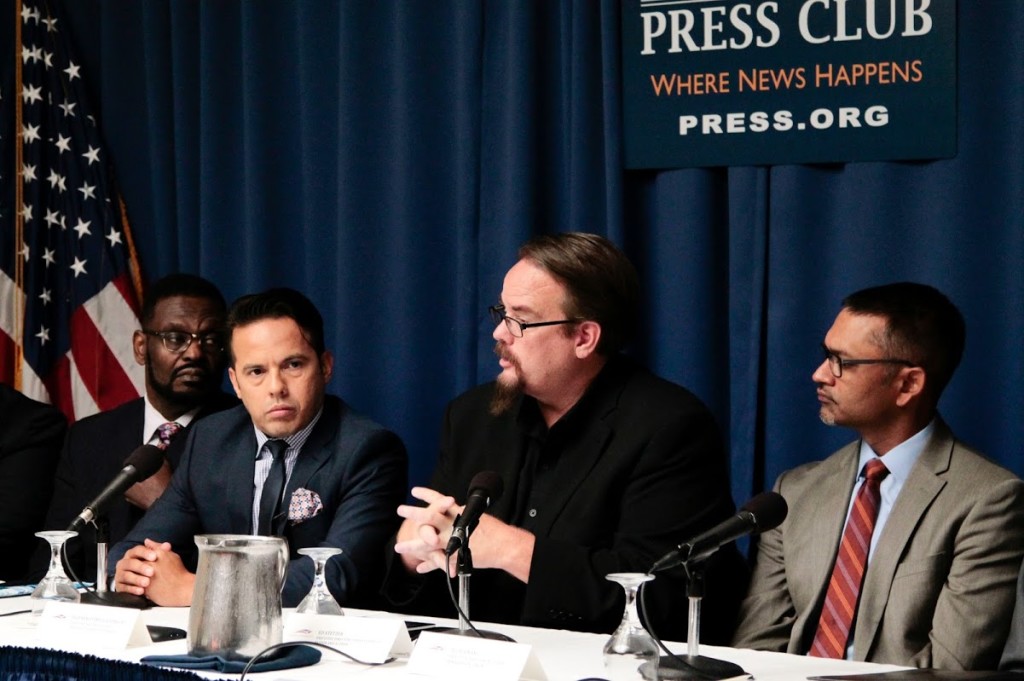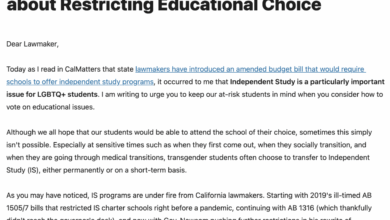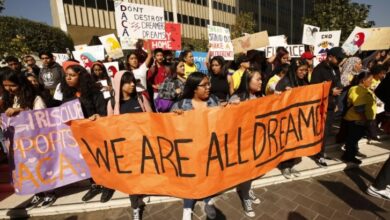Latino Evangelical Churches & Immigration Enforcement
Latino evangelical churches immigration enforcement is a complex issue, touching on faith, community, and legal realities. These churches play a vital role in the lives of many immigrants, providing support and spiritual guidance. However, immigration enforcement policies can significantly impact these communities, affecting their safety, social networks, and ability to advocate for their members’ rights. This exploration delves into the multifaceted relationship between these churches and immigration enforcement, examining the challenges, complexities, and potential solutions.
The article explores the multifaceted relationship between Latino evangelical churches and immigration enforcement. It investigates the historical and contemporary interactions, analyzing how faith-based principles intersect with legal realities. The analysis will also examine the diverse perspectives within the Latino evangelical community, considering cultural backgrounds and theological interpretations. Furthermore, it will highlight the support systems these churches provide to immigrants, from spiritual guidance to practical assistance.
Finally, it will assess the challenges and advocacy strategies employed by these churches in the face of immigration enforcement.
The Role of Latino Evangelical Churches in Immigration
Latino evangelical churches have played a significant role in the lives of immigrants, particularly those from Latin America. Their involvement extends beyond the spiritual realm, encompassing social services, community organizing, and advocacy efforts. This engagement is rooted in a deep commitment to faith-based principles of compassion and service, as well as the historical and cultural context of the immigrant experience.Latino evangelical churches often serve as vital community centers for immigrants, providing a sense of belonging and support in a new environment.
They offer practical assistance, such as translation services, job placement help, and legal aid. Beyond the immediate needs, these churches foster a sense of unity and resilience among immigrant communities.
Historical and Contemporary Relationship
The relationship between Latino evangelical churches and immigration is deeply intertwined with the history of immigration itself. These churches have historically provided spiritual guidance, community support, and social services to immigrants, often acting as a crucial bridge between the new and old worlds. This role has intensified in recent decades as immigration patterns have evolved and as immigration policies have become more complex.
Contemporary involvement demonstrates a commitment to both religious values and social justice, leading to a wide array of programs designed to assist immigrants.
Support for Immigrants
Latino evangelical churches offer a wide range of support to immigrants. This support often extends beyond the purely spiritual, encompassing practical assistance in navigating the complexities of a new country. This practical support includes providing food, clothing, and shelter. These churches often run programs that address basic needs like food banks, clothing drives, and temporary housing.
Latino evangelical churches often find themselves navigating complex issues surrounding immigration enforcement, a delicate balancing act. While these communities frequently provide vital support networks for immigrants, the fear of potential repercussions can create a tense dynamic. This is especially relevant in areas like Sunnyvale, where the tech boom and real estate development, fueled by AI advancements and the rapid construction of new offices, like the recent surge in Sunnyvale tech property development and its impact on the local real estate economy , are impacting local communities in ways that are not always easy to understand.
The challenges faced by Latino evangelical churches in this evolving landscape highlight the intricate connections between faith, community, and immigration policy.
Influence on Immigration Policy Debates
These churches have also played a significant role in immigration policy debates. They advocate for policies that reflect their values of compassion, fairness, and religious freedom. Their voices are often heard at local, state, and national levels, contributing to a nuanced understanding of immigration issues.
Comparison of Approaches
| Denominational Group | Approach to Immigration | Specific Examples |
|---|---|---|
| Assemblies of God | Emphasizes individual responsibility and faith-based solutions. Often focuses on community development and helping immigrants integrate into the society. | Community centers, job training programs, ESL classes. |
| Pentecostal Churches | Emphasizes spiritual guidance and community support, often prioritizing spiritual needs alongside practical aid. | Prayer groups, counseling services, and providing financial support to immigrants. |
| Other Evangelical Denominations | Generally share a commitment to compassion and service. However, specific approaches may vary depending on the local context and leadership. | Refugee resettlement programs, legal aid, and advocacy groups. |
This table provides a general overview, and specific approaches can vary greatly depending on individual churches and their leaders.
Specific Programs Offered, Latino evangelical churches immigration enforcement
Many Latino evangelical churches run a variety of programs to assist immigrants. These programs aim to meet the diverse needs of the immigrant community.
- Spiritual Guidance and Counseling: These programs provide pastoral support and guidance to immigrants, helping them navigate the challenges of adapting to a new culture and environment. They address both spiritual and emotional needs.
- Social Services: Churches often provide food banks, clothing drives, and emergency financial assistance to immigrants in need. These programs address immediate and urgent needs, ensuring basic necessities are met.
- Community Organizing and Advocacy: Some churches organize and participate in community events, advocating for immigrants’ rights and promoting their integration into society. This can include participating in rallies, lobbying for supportive policies, and providing legal aid.
- Language and Cultural Orientation: Churches often provide ESL classes, cultural orientation programs, and translation services to help immigrants adjust to their new surroundings. This helps them better understand their new environment and build relationships within their new community.
Immigration Enforcement and its Impact on Latino Evangelical Communities
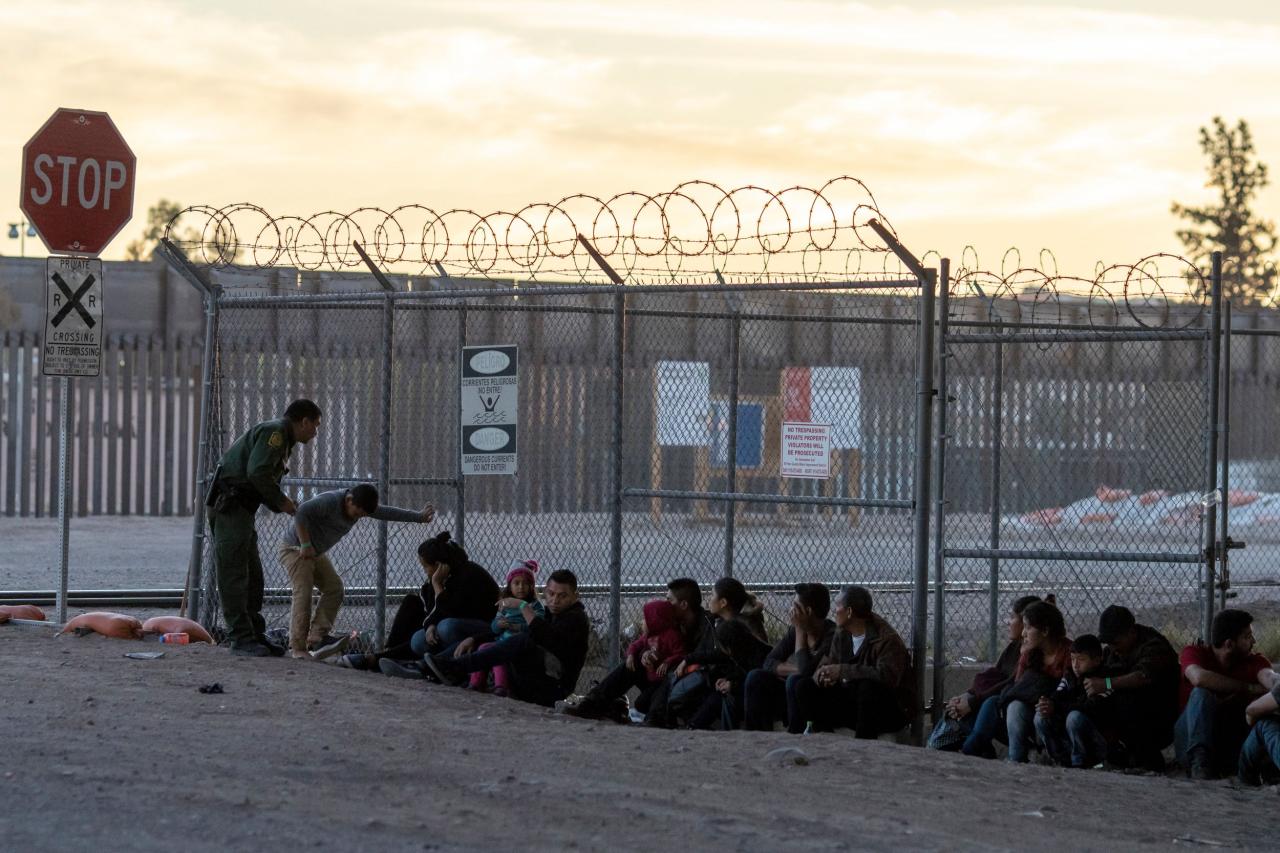
Latino evangelical churches play a vital role in the lives of many immigrant communities, offering spiritual guidance, social support, and practical assistance. However, immigration enforcement policies can significantly impact these communities, creating challenges and potentially undermining the positive contributions of these churches. The safety and well-being of members are directly affected, as are the very structures that support them.Immigration enforcement policies, often characterized by increased surveillance, detention, and deportation, create a climate of fear and uncertainty within these communities.
This fear often manifests in a reluctance to engage with authorities, even for legitimate needs, hindering access to resources and support systems. This, in turn, can have a profound impact on the health and well-being of individuals and families.
Negative Consequences of Immigration Enforcement Policies
Immigration enforcement actions can have profound negative consequences on the safety and well-being of Latino evangelical church members. Increased scrutiny and fear of deportation can lead to social isolation and limit participation in community activities, including church services and events. This disruption of social networks and support systems can be especially damaging for individuals and families already facing significant stressors related to immigration status.
Impact on Church Members’ Safety and Well-being
The fear and anxiety generated by immigration enforcement policies can directly impact the mental and emotional health of church members. Many individuals may experience heightened stress, anxiety, and depression due to the constant threat of separation from loved ones or potential deportation. The trauma associated with these policies can also manifest in physical symptoms, affecting the overall well-being of individuals and families.
Disruption of Social Networks and Support Systems
Immigration enforcement actions often disrupt the strong social networks and support systems that Latino evangelical churches provide. Fear of reprisal can discourage members from seeking help or reporting crimes, limiting the church’s ability to offer assistance and support. Members may also avoid seeking healthcare or other essential services, potentially exacerbating existing health disparities within the community. For example, a church’s community outreach program might be affected, as members may be hesitant to participate in community events due to fear of encountering authorities.
Challenges in Advocating for Immigrant Rights
Latino evangelical churches face unique challenges in advocating for immigrant rights in the face of immigration enforcement actions. Balancing their religious commitment to compassion and their members’ safety is a delicate task. Furthermore, navigating the complexities of immigration law and procedures can be daunting, requiring significant resources and expertise. The potential for legal repercussions for those involved in advocacy efforts can also deter individuals from engaging in such activities.
Impact on Pastoral Care
| Aspect of Pastoral Care | Potential Impact of Immigration Enforcement |
|---|---|
| Providing counseling and support | Reduced willingness to seek help due to fear of deportation; increased demand for services, straining resources. |
| Offering legal assistance | Limited ability to provide legal advice due to fear of jeopardizing members’ safety; potential legal risks for church staff. |
| Organizing community events and support groups | Reduced participation in community activities due to fear of encountering authorities; difficulty in organizing and maintaining support networks. |
| Providing spiritual guidance | Increased anxiety and stress among members, impacting their ability to focus on spiritual well-being; potential need for additional support for coping with trauma. |
| Maintaining communication with authorities | Increased need for careful consideration of communication with authorities to protect members’ safety. |
Intersection of Faith and Legal Status
Latino evangelical churches grapple with the complex intersection of faith and legal status for immigrants. Their theological perspectives, often deeply rooted in biblical principles, shape their stances on immigration, leading to varied interpretations and actions within the community. This intersection is further complicated by the legal realities of immigration enforcement, creating a challenging environment for both congregations and individuals.Theological interpretations of biblical texts on hospitality, justice, and the treatment of the marginalized are central to how Latino evangelical churches view immigration.
These interpretations often inform their positions on immigration enforcement, leading to a range of responses from advocacy for immigrants’ rights to support for law enforcement. The varying theological perspectives within the Latino evangelical community itself contribute to this complexity.
Theological Perspectives on Immigration
Different denominations and individual congregations within the Latino evangelical community hold diverse theological perspectives on immigration. Some emphasize the importance of welcoming the stranger, drawing from biblical narratives like the story of the Good Samaritan. Others prioritize upholding the law, believing that compliance with immigration regulations is essential for maintaining order and societal stability.
Faith-Based Principles and Immigration Enforcement
Faith-based principles often inform the positions of Latino evangelical churches regarding immigration enforcement. For instance, churches that emphasize welcoming the stranger may advocate for comprehensive immigration reform, opposing harsh enforcement measures. Conversely, churches prioritizing the rule of law may support stricter enforcement, emphasizing the importance of respecting legal boundaries.
Comparison of Theological Denominations
The varying interpretations of biblical texts lead to different approaches to immigration. A comparison of the views of Pentecostal churches, often known for their emphasis on personal faith and community, with those of more traditional denominations might reveal differing perspectives on the role of the church in advocating for immigrants. The Pentecostal churches may lean more towards supporting community-based initiatives and outreach programs, while more traditional denominations may concentrate more on upholding the law as they interpret it.
Reconciling Faith-Based Principles with Legal Realities
Reconciling faith-based principles with the legal realities of immigration enforcement presents a significant challenge. Churches may find themselves torn between their commitment to humanitarian values and the need to respect legal processes. This often leads to internal discussions and debates within congregations about how to best serve both the immigrant community and the broader society.
Impact of Theological Interpretations on Actions
| Theological Interpretation | Impact on Actions Regarding Immigration |
|---|---|
| Emphasis on welcoming the stranger, drawing from biblical narratives like the Good Samaritan | Advocacy for comprehensive immigration reform, opposition to harsh enforcement measures, community-based support for immigrants, and potentially, engagement with legal processes to challenge discriminatory policies. |
| Prioritizing the rule of law, believing that compliance with immigration regulations is essential for maintaining order and societal stability. | Support for stricter enforcement measures, potentially including support for border security and immigration policies that prioritize legal procedures, possibly with limited engagement in advocacy for undocumented immigrants. |
| Emphasis on personal faith and community involvement. | Support for community-based initiatives and outreach programs focused on integrating immigrants into the community, often with limited direct advocacy for legal status changes. |
| Emphasis on upholding traditional values and interpretations of scripture. | Potentially more cautious approaches to immigration issues, with a focus on providing support to immigrants within existing legal frameworks, and possibly less direct engagement in advocating for broader policy changes. |
Community Support Systems and Resources
Latino evangelical churches often serve as vital community hubs, extending significant support to immigrant populations. These churches provide a unique blend of social, spiritual, and practical assistance, fostering a sense of belonging and resilience in often challenging circumstances. Beyond their religious role, these congregations play a crucial part in navigating the complexities of immigration, offering resources that extend far beyond the pulpit.These churches act as a safety net, providing essential support services to immigrants.
They recognize the unique challenges faced by newcomers, from navigating legal processes to adapting to a new culture. Their commitment to these communities is demonstrated through diverse initiatives and programs, ranging from basic needs assistance to comprehensive legal support.
Extent of Social Support Systems
Latino evangelical churches often function as central community hubs, offering a wide array of social support services. This includes providing a safe and welcoming space for immigrants to connect with others, build community, and share experiences. This sense of community is crucial for immigrants navigating the complexities of a new country, fostering a sense of belonging and reducing feelings of isolation.
Latino evangelical churches often find themselves caught in the crosshairs of immigration enforcement, a complex issue with far-reaching consequences. Their members, many of whom are immigrants, often face anxieties and challenges navigating the legal system. This is especially pertinent given the current climate of labor relations, where dockworkers are threatening to strike over automation concerns, as seen in recent news ( dockworkers threaten strike automation ).
The struggles faced by these workers highlight the broader economic and social tensions surrounding immigration, further impacting the support systems provided by Latino evangelical churches.
The support system extends beyond immediate needs, addressing emotional well-being and offering guidance during challenging times.
Legal Aid, Financial Assistance, and Language Support
These churches play a critical role in offering legal aid to immigrants facing deportation or visa issues. They connect individuals with legal professionals or organizations that can provide assistance with immigration procedures. Moreover, churches often provide financial assistance, such as food banks, clothing drives, and emergency funds, to address immediate needs. Furthermore, language support is crucial, with many churches providing ESL classes, translation services, and cultural orientation programs to help immigrants integrate into society.
Latino evangelical churches are often at the forefront of immigration advocacy, and their stance on immigration enforcement is complex. With the planet experiencing record-breaking temperatures, as reported in earth records hottest year ever , it’s crucial to consider how these extreme conditions might disproportionately affect immigrant communities already facing challenges in navigating the immigration system. The intersection of these issues highlights the need for compassionate and just solutions for all.
Limitations and Gaps in Services
Despite their commitment, these churches face limitations in providing comprehensive support. Resources may be constrained by the church’s financial capacity, the expertise available within the congregation, and the specific legal and logistical complexities of the immigration process. There may also be gaps in services, such as specialized legal aid for specific immigration statuses, or limited access to specialized mental health support for those experiencing trauma.
Addressing the Needs of Vulnerable Populations
Churches are proactively working to address the needs of vulnerable immigrant populations, including unaccompanied minors, victims of trafficking, and those facing significant language barriers. Innovative programs are being developed, incorporating collaboration with other organizations to expand resources and create a more comprehensive support network. Examples include partnerships with local legal aid organizations, establishing support groups, and organizing community outreach events to raise awareness of resources available.
Resources Provided by Latino Evangelical Churches
| Type of Assistance | Examples of Resources |
|---|---|
| Legal Aid | Connecting immigrants with legal professionals, assisting with immigration procedures, providing information on legal rights. |
| Financial Assistance | Food banks, clothing drives, emergency funds, assistance with rent or utilities. |
| Language Support | ESL classes, translation services, cultural orientation programs, interpreting services. |
| Social Support | Community gatherings, support groups, mentoring programs, creating a sense of belonging and reducing isolation. |
| Other | Childcare, educational programs, referrals to other community services, emergency shelter. |
Advocacy and Political Engagement
Latino evangelical churches are deeply involved in advocating for immigration reform, often leveraging their strong community ties and faith-based principles to champion the rights of immigrants. Their engagement extends beyond simply offering pastoral support; it frequently translates into tangible political action, shaping public discourse and influencing policy decisions. This involvement is critical in addressing the complex issues faced by immigrant communities, and their efforts have had significant impact, although challenges remain.These churches recognize that their voices carry weight within their communities and within the broader political landscape.
They are well-positioned to influence public opinion and mobilize support for policies that benefit immigrants, leveraging their existing infrastructure and networks of support. This advocacy extends beyond simply offering aid to addressing systemic issues and seeking broader societal changes.
Methods of Advocacy
Latino evangelical churches employ various methods to advocate for immigration reform, drawing upon their established networks and community influence. These strategies often combine direct action with faith-based appeals, creating a powerful force for change. The methods vary widely, depending on the specific church’s resources and community context.
Community Organizing and Political Action
Community organizing plays a pivotal role in supporting immigrant rights within Latino evangelical communities. This involves mobilizing members, educating them on relevant issues, and coordinating collective action. Political action, such as lobbying, contacting elected officials, and participating in protests or rallies, further amplifies the voices of immigrants and their advocates. Churches often serve as hubs for these activities, connecting individuals with opportunities for engagement and action.
The success of such initiatives hinges on strong leadership, effective communication, and shared commitment.
Examples of Successful Advocacy Efforts
Numerous examples illustrate the effectiveness of Latino evangelical church advocacy for immigration reform. Some churches have spearheaded campaigns to raise awareness about the challenges faced by undocumented immigrants, educating their congregations and the broader community. Others have actively lobbied for specific immigration policies, using their collective voice to influence lawmakers. Examples include organizing voter registration drives for immigrant communities and supporting legal aid organizations assisting immigrants.
These efforts often demonstrate a profound understanding of the intersection of faith and public policy, creating a powerful combination of spiritual and political action.
Challenges and Limitations of Political Engagement by Religious Organizations
While Latino evangelical churches are highly effective advocates, their political engagement faces several challenges. One key limitation is the potential for internal divisions regarding political stances. Diverse viewpoints within the community can sometimes hinder unified action. Another challenge is the delicate balance between maintaining a faith-based identity and engaging in politically charged issues. Navigating these complexities requires careful consideration and a commitment to inclusivity and respect for differing perspectives.
Religious organizations must also be mindful of maintaining their credibility and avoiding accusations of partisanship.
Table of Advocacy Strategies
| Advocacy Strategy | Description | Examples |
|---|---|---|
| Community Outreach and Education | Raising awareness about immigration issues within the community, fostering understanding and empathy. | Workshops, seminars, and presentations. |
| Grassroots Mobilization | Encouraging and supporting community members to participate in advocacy activities. | Organizing protests, rallies, and letter-writing campaigns. |
| Lobbying and Policy Advocacy | Contacting elected officials to advocate for specific immigration policies. | Direct meetings with representatives, testifying before legislative committees. |
| Public Awareness Campaigns | Using media and other platforms to raise public awareness about immigration issues. | Press releases, social media campaigns, and community events. |
Cultural Context and Diversity: Latino Evangelical Churches Immigration Enforcement
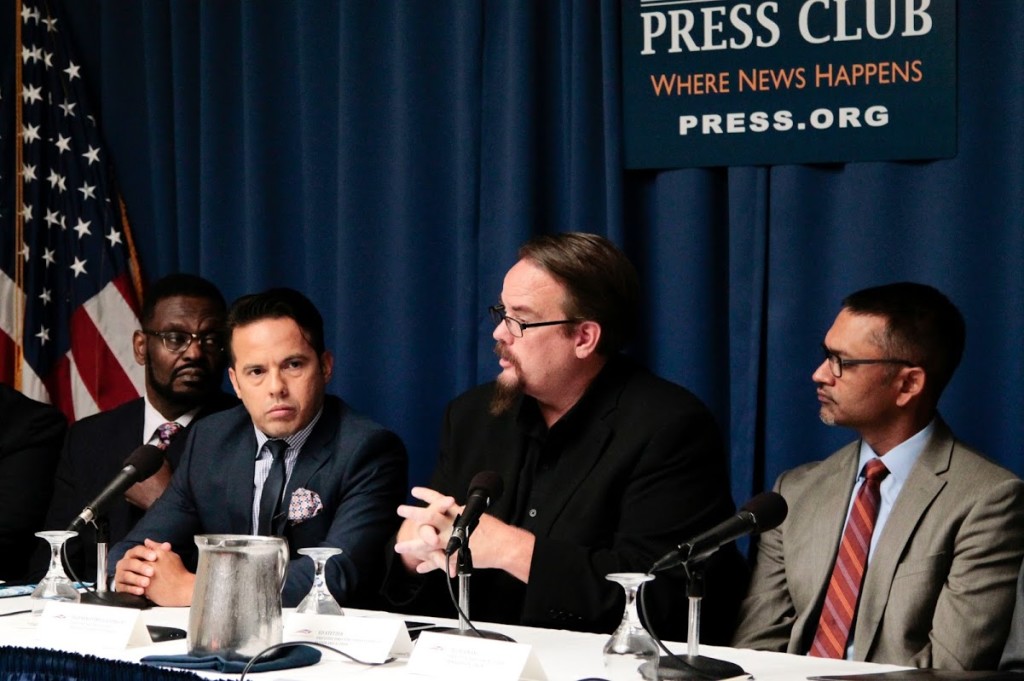
The Latino evangelical community is not a monolithic entity. It encompasses a vast array of nationalities, cultural traditions, and socioeconomic backgrounds, each with its own unique perspective on immigration and immigration enforcement. Understanding these nuances is crucial for comprehending the diverse responses within the community to these complex issues. These diverse perspectives are shaped by historical experiences, family histories, and individual interpretations of faith.The Latino evangelical community, while unified by faith, harbors a spectrum of views on immigration and immigration enforcement.
These differing perspectives stem from varied cultural backgrounds, socioeconomic situations, and personal experiences. Factors such as the country of origin, length of time in the United States, and level of acculturation all play a role in shaping individual and community stances on these sensitive topics. Recognizing these diverse viewpoints is paramount to accurately assessing the role of Latino evangelical churches in addressing immigration issues.
Diverse Cultural Backgrounds and Experiences
The Latino evangelical community is a tapestry woven from threads of various nationalities, each with its own rich history and cultural heritage. From Mexico and Central America to South America and the Caribbean, the community encompasses a broad spectrum of cultural practices, traditions, and values. This diversity extends to language, family structures, and socioeconomic realities, all of which influence perspectives on immigration.
For instance, communities directly affected by violence or economic instability in their home countries might hold stronger views regarding immigration safety and support.
Influences on Views on Immigration and Enforcement
Cultural values and historical experiences play a significant role in shaping individual and community views on immigration and enforcement. In some cultures, family ties are paramount, and migration is often driven by a desire to provide opportunities for family members. In others, a strong sense of national identity and patriotism might influence views on immigration policy. These diverse perspectives require careful consideration to avoid generalizations and ensure accurate representation of the Latino evangelical community’s position on immigration.
Importance of Understanding Cultural Nuances
Analyzing the role of Latino evangelical churches in immigration matters necessitates a deep understanding of cultural nuances. Simply categorizing the community as a whole fails to capture the intricate interplay of faith, culture, and personal experiences that shape perspectives. Without acknowledging the varied cultural backgrounds and historical contexts within the community, any analysis will be incomplete and potentially misleading.
An effective approach must consider the specific cultural context of each group to comprehend their unique responses to immigration and enforcement policies.
Diversity of Views on Immigration
Recognizing diversity within the Latino evangelical community regarding views on immigration is critical. Some members may advocate for stricter enforcement measures, while others may prioritize compassion and support for immigrants. This spectrum of opinions reflects the multifaceted nature of the community and the various factors influencing their beliefs. Different cultural groups within the community may hold vastly different views on the same issues.
Comparing and Contrasting Perspectives
| Cultural Group | General Perspective on Immigration Enforcement | Reasons/Motivations | Potential Impact on Church Involvement |
|---|---|---|---|
| Mexican Evangelical Community (e.g., from rural areas) | Often more concerned with family reunification and protection of vulnerable migrants. | Strong family ties, historical migration patterns, and often a history of facing hardship in their home countries. | Likely to focus on community support services and advocacy for humane immigration policies. |
| Dominican Evangelical Community | Diverse views, some leaning towards stricter enforcement, while others prioritize community support. | Historical context of migration, varying levels of integration into American society, and socioeconomic factors. | Potentially varied approaches to immigration, from providing resources to migrants to upholding stricter legal standards. |
| Colombian Evangelical Community | Generally concerned with the safety and well-being of migrants, often influenced by historical experiences of violence and instability in their country. | History of civil unrest, desire to protect families and ensure their safety. | Likely to be involved in community support programs and advocating for policies that protect vulnerable migrants. |
Outcome Summary
In conclusion, Latino evangelical churches are central to the immigrant experience in the U.S., offering essential support and advocacy in the face of complex immigration enforcement policies. The intersection of faith, legal status, and community is evident in the varied approaches taken by different denominations and cultural groups. The churches’ efforts to provide social services and advocate for immigration reform underscore their commitment to their members and the wider community.
Understanding these dynamics is crucial for fostering a more just and equitable system for all.
